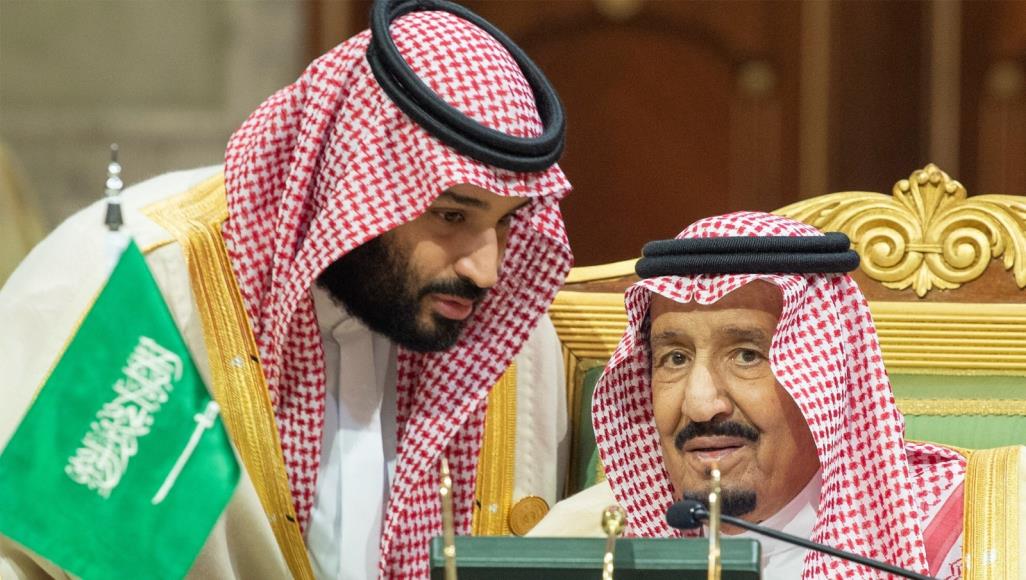
King Salman and his son’s reign have resulted in an escalation in executions. King Salman or his deputies have signed off on 703 death sentences during the years of his rule between when he first took power to the end of May 2019. These have included sentences for at least 10 minors. It is not known whether any of them received a trial that met the conditions for fair proceedings. After closely following some of their trials, the circumstances of their detention, and details of the violations to which they were subjected, the European Saudi Organization for Human Rights (ESOHR) found deep breaches of local regulations and international conventions, as well as various incidents of torture which did not face any legal accountability.
On April 23, 2019, as part of a horrific mass execution of 37 prisoners, Saudi Arabia beheaded six minors after charges were brought against them at the ages of 16 and 17. The great majority were not connected to the most serious crimes but rather with peaceful protests.
On January 2, 2016, as part of a previous mass execution carried out one year after King Salman took power, 47 prisoners were killed. ESOHR has confirmed that four minors were among them: Ali Al Ribh, Mustafa Abkar, Meshal al-Faraj and Amin al-Ghamdi. Ali Al Ribh had been one of those who had entered the Prince Mohammed Bin Naif Counseling and Care Center, which according to Saudi Arabia, aims to ideologically rehabilitate prisoners before their release. Al Ribh had undergone a rehabilitation course and obtained a positive evaluation—yet he was still executed.
The Saudi government, in the form of the public prosecution – which is under the direct authority of King Salman – merges together a mix of charges but it does not clarify in the ruling texts which charge was the reason, in the judge’s view, for the death sentence. Through a review of dozens of cases, it was observed that the method was to compile a variety of charges and append them with citations of religious texts, and then conclude them with the issuance of the death sentence. ESOHR found in its analysis that the religious texts subject to citation were not often unrelated to the charges.
Four minors currently face threat of execution. Ali Nimr, Dawoud al-Marhoun and Abdullah al-Zaher have been threatened with execution since 2014. They have been subject to rulings which have blatantly violated the conditions of justice, having been deprived of legal support to a large degree and subjected to various forms of torture, and they could now be executed at any moment.
Furthermore, Saudi Arabia has recently added the minor Murtaja Qureiris (24/10/2000)—arrested on September 20, 2014, when he was 13 years old—to the list of minors threatened with execution. The prosecution has requested the hudud punishment for “unlawful warfare.” Murtaja is the youngest political prisoner subject to a death sentence request. He faces charges going back to when he was 11 years old, including charges related to participation in protests. Murtaja started participating in protests when he was 10 years old, and his activities increased after Saudi forces killed his brother, activist Ali Qureiris, while he was participating in a peaceful protest on November 23, 2011. Based on some of the available information, ESOHR believes it is likely that other minors are included on the lists of those facing execution.
Furthermore, Saudi Arabia has recently added the minor Murtaja Qureiris (24/10/2000)—arrested on September 20, 2014, when he was 13 years old—to the list of minors threatened with execution. The prosecution has requested the hudud punishment for “unlawful warfare.” Murtaja is the youngest political prisoner subject to a death sentence request. He faces charges going back to when he was 11 years old, including charges related to participation in protests. Murtaja started participating in protests when he was 10 years old, and his activities increased after Saudi forces killed his brother, activist Ali Qureiris, while he was participating in a peaceful protest on November 23, 2011. Based on some of the available information, ESOHR believes it is likely that other minors are included on the lists of those facing execution.
As well as being a violation of local laws, the continual beheading of minors and the threats to the lives of others also ignores regional and international stances. In addition to the criticism Saudi Arabia has faced because of its executions of minors, the Working Group on Arbitrary Detention has called for the release of the four children currently facing death sentences. In February 2017, the team published its view on the issue of the minors Ali Nimr, Dawoud al-Marhoun, and Abdullah al-Zaher. It said that what the three young men had been subjected to constituted arbitrary detention. In January 2017, the team published its view of the minor Murtaja Qureiris and called for his immediate release.
Moreover, in a report issued in October 2016, the Committee on the Rights of the Child called on Saudi Arabia to take legal measures to protect children and to prevent them from being executed. The death sentences also ignored legal analyses that have confirmed them to be invalid, including the legal analysis conducted under the supervision of the independent legal expert Zafar Jundal, an expert in counterterrorism and human rights, who stressed the invalidity of the ruling against the child Ali Nimr and the incompetence of the judge.
ESOHR believes that the continuing threat to the lives of minors contradicts official Saudi claims that death sentences are not being issued against them—which is the highest levels of bloodiness. ESOHR stresses that the Human Rights Council, of which Saudi Arabia is a member for the fourth time, should take a serious and immediate position, especially given the violations of obligations, including the Convention on the Rights of the Child and the Convention against Torture. Facebook Twitter Email
